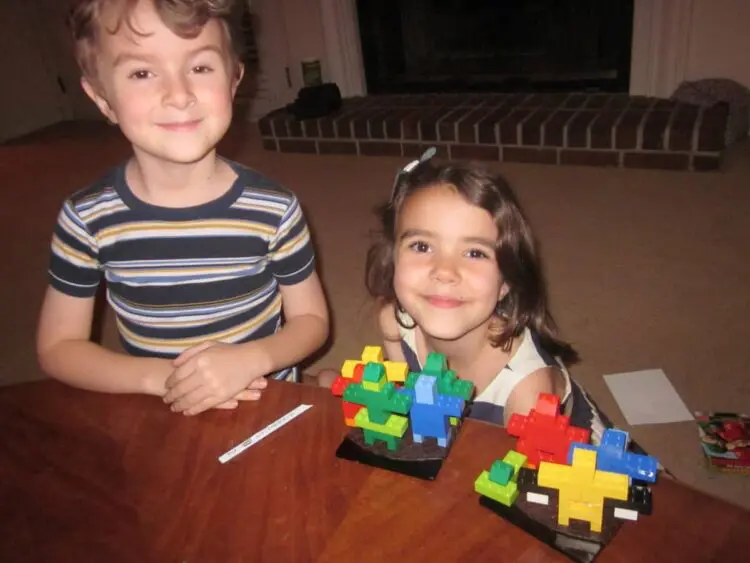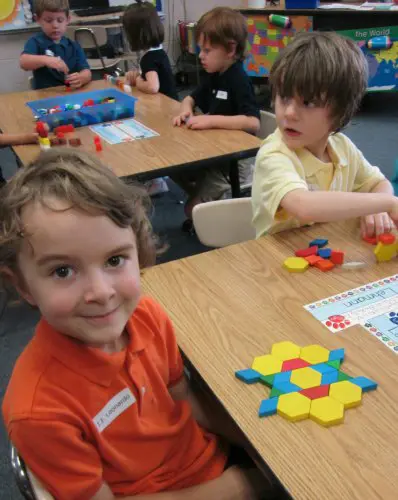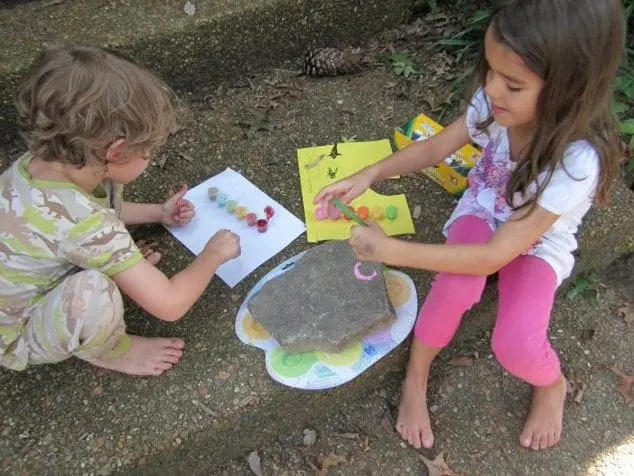As parents, we all want our children to be happy and to interact well with other children and adults. We can all see the importance of strong social skills for toddlers. They aid in the ability of the child to play well with others and to perform well in school. That is why I am happy that Dr. Tali Shenfield is sharing tips with us on how to help young children develop strong social skills. These social skills activities for toddlers are very useful in forming more age appropriate expectations. Don’t rush these social skills for toddlers, but do provide them with support and guidance.
Thanks to Dr. Tali Shenfield, Clinical Director of Richmond Hill Psychology Center. It wis so nice to have her share this information on social skills for kids. She holds a PhD in Psychology from the University of Toronto and is licensed as a Child Psychologist by the College of Psychologists of Ontario. Dr. Shenfield is accredited by the Canadian Register of Health Service Providers in Psychology. If you’d like more information about Dr. Shenfield, you can find it on her website: www.psy-ed.com
Toddler Social Skill Development
Social-emotional wellness refers to the ability to experience, express and regulate emotions. It also addresses the ability to form secure positive relationships and acquire increasing independence. A child who has healthy social-emotional skills is able to label and understand his or her own feelings as well those of others. He can manage his own emotions and express them in a way that is positive and helpful to him and appropriate for his social situation. As children grow, they learn to empathize with people in their environment. They are able to form and maintain positive relationships with adults and other children in their community.
Children, however, are not born with these social abilities and must learn them. It is up to caregivers and educators to teach social-emotional skills implicitly and explicitly from early on. In order to be successful in this endeavor, adults need to read the child’s cues. The parent or teacher needs to acknowledge which stage the child is at, and understand what is to be expected at each age. Encourage your child’s social interactions by praising their efforts and successes.
How To Develop Social Skills In Toddlers
In the first year of a child’s life, he sends cues to parents and other caregivers to express how he feels. A young baby will cry when in distress and smile at the voices, faces and smiles of familiar people. Her little face and body will react when she is interested, surprised or frustrated. It is our responsibility to interpret and react to these cues. This is how we teach the child that we are in tune with their needs. Parents foster social development by changing their baby’s soiled diapers, smiling in response to their smiles, and talking to their child.. Parents should also play fun games. Examples include peek-a-boo and naming the things in the child’s environment such as toys and parts of the body. These activities increase attachment between baby and primary caregiver.
As attachments are formed, your child will respond differently when an unfamiliar person attempts to hold, stroke or even feed him or her. The little one responds with anxiety. These are normal reactions indicating that the child’s social-emotional development is proceeding well.
Social Skills Development For 12-36 Months
Children 12 to 36 months of age see themselves as the center of the world and begin to be more self-aware. They begin to become more independent. As a result, they can have short-lived and rapid mood swings in which tantrums can be expected. They start testing their limits, are not keen to share and will not play with other children as much as play next to them. At this time, routines are very important.
To help young children develop strong social skills, you can begin by praising your toddler for doing things independently and give them toys to play with. You can start planning playdates and encourage your child to make decisions and explore. Continue to sing songs, clap hands and dance together. Encourage your child to imitate your silly moves. In his third year, listen and talk with your child. Talk to them about how you feel and teach them to do the same by identifying and acknowledging how they feel. When conversing, do not stand above them: get to their level, look them in the eyes and speak face to face.
Social Skills For Toddlers 3-5 Years Old
At three to five year old, children begin to enjoy playing with other children. They need to learn how to share, take turns and talk about their feelings in order to express themselves and resolve conflict. Teach them implicitly by modeling such behavior. Explicitly teach them the language of feelings and social negotiation. They’re eager to please and want to be trusted. To help young children develop strong social skills, it is important to set clear and consistent consequences for what happens when they break the rules.
As their mind develops, they will begin to show an understanding for the point of view and feelings of others (empathy). Let them participate in role-playing games with others in which they can play pilot, doctor, policeman, etc., to gain independence, build confidence and learn the roles of adults around them. Discussing books and movies and giving them small household chores, such as setting the table or cleaning up their toys after a game also helps with development of strong social-emotional skills.
Social Skills Activities For Toddlers
Here are some fun and simple social skills activities for toddlers that encourage sharing, cooperation, and communication while keeping things playful:
1. Turn-Taking Games
- Use a ball, toy car, or stacking blocks.
- Say “my turn, your turn” as you play to help them practice patience and sharing.
2. Pretend Play
- Set up a play kitchen, doctor’s kit, or dollhouse.
- Encourage your toddler to act out roles like “cooking for a friend” or “taking care of a doll.”
- Pretend play builds empathy and understanding of others.
3. Simple Cooperative Art
- Roll out a big sheet of paper and give toddlers crayons or washable markers.
- Let them “draw together” and praise collaborative efforts.
4. Group Songs and Movement
- Songs like Ring Around the Rosie or The Hokey Pokey teach cooperation, listening, and following group actions.
5. Storytime with Feelings
- Read picture books about emotions (e.g., “happy,” “sad,” “mad”).
- Pause to ask: “How do you think he feels?” or “What should she do?”
6. Building Together
- Work with blocks, Legos, or Magnatiles.
- Encourage toddlers to “help” build something with you, fostering teamwork.

Pro Tip: Keep activities short (5–15 minutes), model the behavior you want to see, and use lots of encouragement.
Conclusion
Solid social-emotional skills are crucial for young children to thrive and handle difficult situations. The key is to establish secure relationships with caregivers that will teach them about compassion, trust, generosity and empathy through experience. Helping your toddler become more social involves creating opportunities for them to interact with others and develop their social skills. Arrange playdates with other toddlers or children to help your child learn to share and socialize. Enroll your child in group activities like music classes, art classes, or toddler gym classes where they can interact with other children.
By providing opportunities for social interaction and modeling positive social behaviors, you can help your toddler develop important social skills that will benefit them throughout their lives. Do you have any additional tips? Or stories you would like to share on developing social skills in toddlers? Tag us #familyfocusblog on social media to discuss more!
Related Posts:
Table Manners Etiquette Even the Modern Kid Should Know



Anni says
These are really great and helpful tips. I always think that persons with socially developed skills advance more in life and are much able to land the more successful opportunities!
Jeff says
Anni, you are absolutely correct. Since Daniel Goleman introduced the term Emotional Intelligence (EQ) in 1995, it was shown by many research studies that EQ is a critical predictor od success in life, much better predictor than IQ. According to recent article at Harvard Business Review, IQ only accounts to 20% of influence for person’s success in life, while EQ is for remaining 80%!
Jordyn says
Great ideas! Also provide short, structured playdates (20–30 minutes) with one other child. Then provide activities like puzzles or building blocks that encourage cooperation rather than competition.
Robert Daisy says
Thanks for sharing these tips! Teaching young kids social skills early is so important—things like listening, empathy, and sharing really build up over time. Great reminders for parents looking to help kids grow confident and kind.